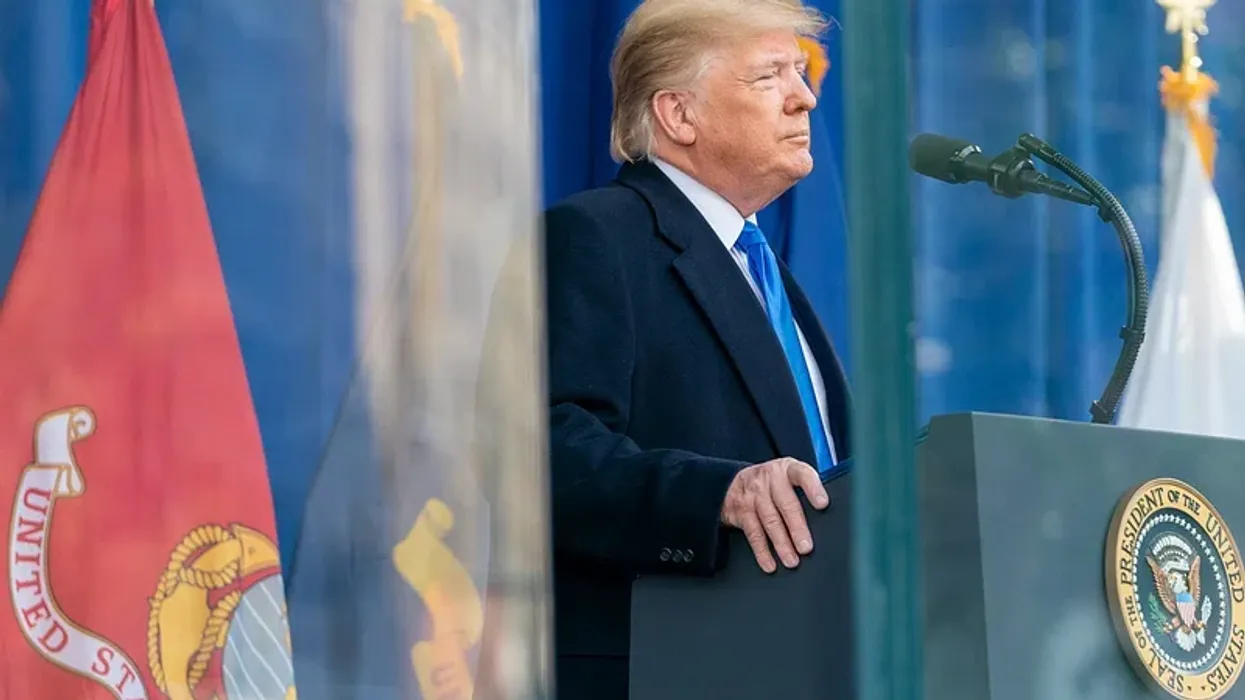'Meticulous': Law professor lays out potential effects of Colorado court’s 'incredibly important findings'

The Colorado Supreme Court's Tuesday, December 19 ruling that Donald Trump is disqualified from the state's primary ballot over his incitement of an insurrection, will now go to the United States Supreme Court.
Trump, according got the ruling, is disqualified under section 3 of the 14th Amendment of the US Constitution, which states, "No person shall be a Senator or Representative in Congress, or elector of President and Vice-President, or hold any office, civil or military, under the United States, or under any State, who, having previously taken an oath, as a member of Congress, or as an officer of the United States, or as a member of any State legislature, or as an executive or judicial officer of any State, to support the Constitution of the United States, shall have engaged in insurrection or rebellion against the same, or given aid or comfort to the enemies thereof. But Congress may by a vote of two-thirds of each House, remove such disability."
During the latest episode of MSNBC's The ReidOut, New York University law professor Melissa Murray explained how Trump's case could ultimately play out.
POLL: Should Trump be allowed to hold office again?
"Section 3 encompasses the office of the presidency and someone who has taken an oath as president. On that point, the Colorado Supreme Court says the district court committed reversible error. Another one: 'The district court did not error in concluding that events at the US Capitol on January 6, 2021, constituted an insurrection. The district court did not error in concluding that President Trump engaged in that insurrection through his personal actions. President Trump's speech inciting the crowd that breached the US Capitol on January 6th, 2021, was not protected by the first amendment.' Those seem to be ripe issues for the supreme court to litigate. How do you perceive this going, given the fact that these folks, the majority claim to be originalists, and the section 3 was written specifically, originally, to stop insurrection and Trump apparently did so?"
Murray said, "This is a great night for constitutional law professor salivating thinking about the new semester. The Colorado Supreme Court wrote a meticulous opinion over 200 pages. They went through every argument in incredible detail, explaining themselves with really remarkable clarity, and I think they did that knowing that this is on a bullet train to the supreme court. And as you say, they agreed with many of the district court's findings below, particularly insofar as Donald Trump engaged in insurrection, he recruited and incited these followers to go to the Capitol to engage in an act of insurrection, and his speech was not protected under the First Amendment. Those are incredibly important findings."
The law professor continued, "Where they differ from the district court, is in the question about the substantive meeting of section 3 of the 14th amendment. Again, section 3 does not specifically mention that the president is one of the federal officers to whom it applies, but as you say, this was an amendment ratified in the wake of an American civil war that was understood as an insurrection against the union, and that any federal officer who had pledged to uphold the Constitution, and then had joined the confederacy, was engaged in an act of insurrection, and that included everyone from the top of the ticket to the rank and file below. And so, they came to the conclusion that the history, the text, all supports the view that this applies to the president of the United States, even if the president of the United States is not specifically enumerated as a federal officer here. So, this is going to the supreme court. There are a number of jurisdictional avenues the court can take to get out of this about deciding the substantive meaning of section 3 of the 14th amendment."
Murray emphasized, "I think one question here is whether or not the Colorado state court had jurisdiction to take this up, and that will be something the court will attend to. The question of whether or not section 3 of the 14th amendment is self-executing, or whether it requires some kind of congressional action, like a statute providing a cause of action, is also another issue that the court could decide this on. And the due process issue. There are a number of off ramps here. But, if the supreme court takes up the substantive question determines that the text of section 3 makes clear it applies to Donald Trump, and that Donald Trump was engaged in an insurrection on January 6th, this is going to set off a domino effect that literally will go throughout the country as more and more states line up to decide whether or not they will disqualify. Remember, election law is a creature of state law. The states get to decide the procedures and the mechanisms for their own election — even federal election — and so each state can come to its own conclusion. And so, if the court decides this in a way that goes against Donald Trump, we may find ourselves with a patchwork of ballots on election night in 2024."
READ MORE: US Supreme Court will uphold Trump disqualification, top legal expert predicts
Watch the video below or at this link.
Law professor lays out potential effects of Colorado court’s 'incredibly important findings' youtu.be
READ MORE: Why Donald Trump should absolutely fear the 14th Amendment
from Alternet.org https://ift.tt/gdM78fr
via sinceretalk
Comments
Post a Comment